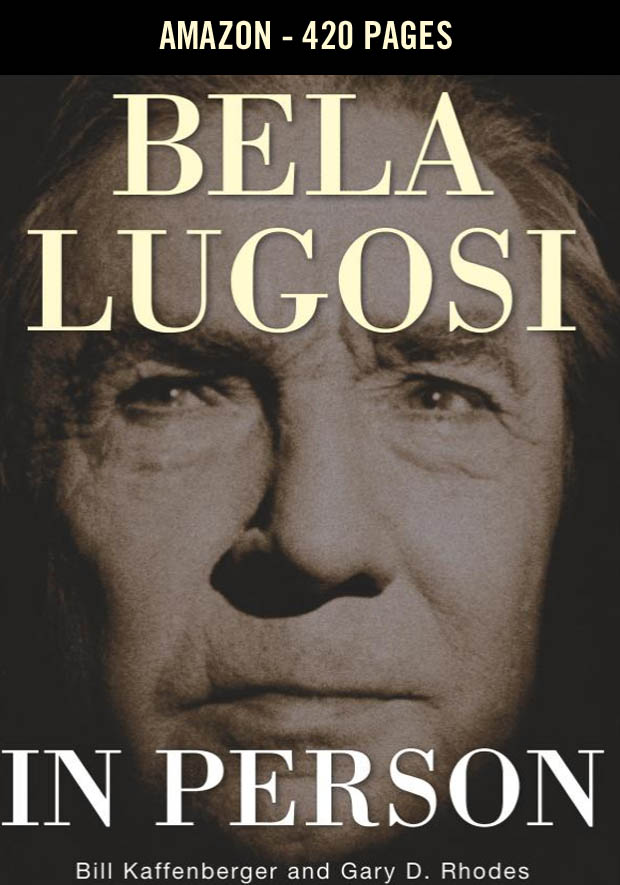Dracula - 1931
The "Spanish Dracula"
Dracula - Released April 24, 1931. Directed George Melford and Enrique Tovar Avalos
The 1931 "Spanish Version" of Dracula, made on the same sets (and using a lot of the same costuming) as the more famous Bela Lugosi version. Director George Melford (and the uncredited Enrique Tovar Ávalos) shot their version of the script at night, the project packaged as a way for Universal to take the same vampire property and customize it for the Spanish speaking markets. An unintended result is that the 'Spanish' version acts as a critical-sidekick to the iconic Tod Browning English version, and Melford's version frequently shows off the Dracula movie set in a better light, and at times uses more adventurous techniques (such as rolling boom shots that inject more motion into the visual story). Another aspect of the Spanish version is that the finished movie utilizes more script, compared to the Browning version which is 19 minutes shorter.
Part of that visual difference are the three "Dracula's wives" who are a more savage and threatening vampire junta in the "Spanish Version" than are the more somnombulistic trio found in the Lugosi version.
Classic monster movie aficionados sometimes argue over which film is the superior version, and this was especially true when the "Spanish Dracula" was brought back to circulation by combining the incomplete reels in Universal's possession with a reel found in Cuba in the 1980s.
For fans who had seen the Lugosi version dozens of times, to suddenly see a "new" version on the same sets but with sometimes radically different presentation of the script was revitalizing. For a time the reputation of the Tod Browning version of Dracula suffered in comparison, but as the newness of the "Spanish Version" has worn off, a direct comparison of the two movies shows a few basic differences.
Tod Browning invested more into the gothic darkness of his story, and the zombie-like performance of the three wives in his tale is an example of the difference in approach between Directors Browning and Melford, as Melford's movie seems to move faster and has an urgency at times that is closer to the same spirit of other talkies of 1931. But Browning's heavy gothicism sets it apart and makes it antithetical to other Hollywood product of 1931. The energy and activity of a typical 1931 movie that is set in an American urban center is not found in the shadowed world of Browning's London, and this slowness matches the slow phonetic line reading of Bela Lugosi. The dreamlike slowness makes the contrast that much greater when Count Dracula (Lugosi) suddenly and violently smashes the little mirror of Van Helsing (Edward Van Sloan) which has provided definitive proof that Dracula simply isn't like the other boys in our cast, and that all of the gentle high manners and politeness of the English parlor isn't going to contain a hungry vampire.
Not that Melford's film avoids any of this, because, after all, Melford shot his movie as an imitation of Browning's. True, Melford makes the three wives a hungrier group, and his leading lady (Lupita Tovar) is a different girl altogether (she is named Eva, not Mina) but his Count Dracula (played by Carlos Villarías) is based entirely on Lugosi, and imitation is, as they say, flattery. In the end, it is Lugosi that makes Browning's movie as unique and strange as it is, and so by way of Villarías, Melford's movie cannot be but a lessor photocopy.
An alternative review of The Spanish Dracula of 1931
More Dracula vs Dracula
Amazon - Bela Lugosi in Person - 420 pages
Amazon - No Traveler Returns: The Lost Years of Bela Lugosi - 346 Pages
Frankenstein Created Woman - 1967
Frankenstein meets the Wolfman - 1943
What's Recent
- Grand Exit - 1935
- Island of Desire - 1951
- Road to Morocco
- The Devil and Miss Jones - 1941
- Sinners - 2025
- Something for the Boys - 1944
- The Mark of Zorro - 1940
- The Woman They Almost Lynched - 1953
- The Cat Girl - 1957
- El Vampiro - 1957
- Adventures of Hajji Baba – 1954
- Shanghai Express 1932
- Pandora's Box – 1929
- Diary of A Chambermaid - 1946
- The City Without Jews - 1924
- The Long Haul
- Midnight, 1939
- Hercules Against the Moon Men, 1964
- Send Me No Flowers - 1964
- Raymie - 1964.
- The Hangman 1959
- Kiss Me, Deadly - 1955
- Dracula's Daughter - 1936
- Crossing Delancey - 1988
- The Scavengers – 1959
- Mr. Hobbs Takes A Vacation - 1962
- Jackpot – 2024
- Surf Party - 1964
- Cyclotrode X – 1966
Original Page 2017 | Updated June 15, 2025
